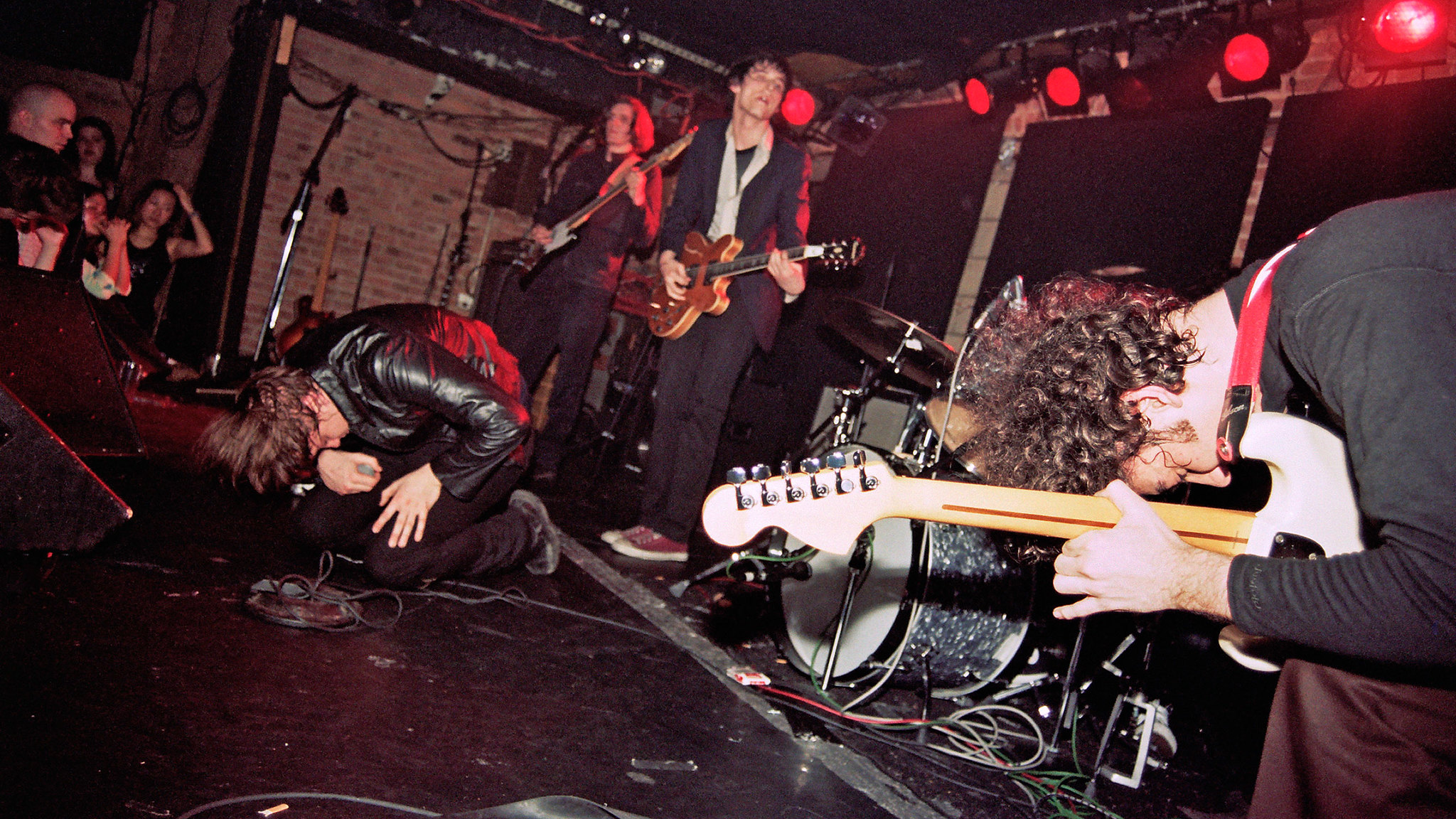by Bailey Pennick
“Well, that was long ago and, darling, I don’t mind…”
There’s something unsettling about watching Meet Me In The Bathroom. Every song played — many shown played in their natural habitat of a dark, packed club — pierces your soul with the same immediacy and importance it had the first time you heard it. These songs of bands like Yeah Yeah Yeahs, the Moldy Peaches, Interpol, LCD Soundsystem, and The Strokes, are universal expressions of love, angst, and anxiety. They’re timeless. And yet, here we are looking at VHS tapes, Napster, chunky cell phones, MTV2 interviews, and historical footage of September 11. It’s hard to admit that the music we’ve been returning to time and time again for twenty years is actually, in fact, twenty years old.
“We wanted to tell the story of the ephemeral quality of youth,” says Dylan Southern, along with his directing partner, Will Lovelace. The Sundance Film Festival alumni (Shut Up and Play the Hits) achieve the impossible with this visual companion piece to Lizzy Goodman’s book of the same name; they not only help the audience time travel to a musical big bang in New York, they help you feel like these bands were your friends and their intimate memories were your own.
“It’s a fascinating time because it was the infancy of the internet,” Lovelace explains like a history lesson. “Not everyone had cell phones, so making music and meeting people was a very different experience.”
Through a mix of archival coverage of these bands, intimate audio interviews with the members, and never-before-seen private photos and footage, Meet Me in the Bathroom chronicles the rock and roll revival birthed on the Lower East Side of Manhattan. “It was a long process of finding bits of magic,” Southern continues. “There’s material here that has never been seen except by the eyes that shot them.”
After the exhilarating rise of these bands — including the infamous Mercury Lounge residency of The Strokes — Meet Me’s young hustler energy gives way to the complex and sometimes upsetting realities of drug abuse, harmful behavior, and sexism within the scene. And on top of all of that, a common theme between the bands is just complete burnout from going 24/7 after their expanding dreams. “We always looked at these as coming of age stories,” says Southern. “Coming of age in this time, right as the world was going through a major change was very interesting to us.”
And we, as viewers, are coming of age all over again with these bands. As we watch Julian Casablancas and Nick Valensi of The Strokes prepare a meal in a small apartment while casually talking about their new record (2003’s Room on Fire), we’re not thinking about their onstage antics, we see our friends and ourselves.
This intimate collage of sounds and visions feels dreamy and raw all at the same time. Lovelace knows how you’re feeling: “If you were there it feels like you’re back and if you weren’t there, now you know what it feels like.”







